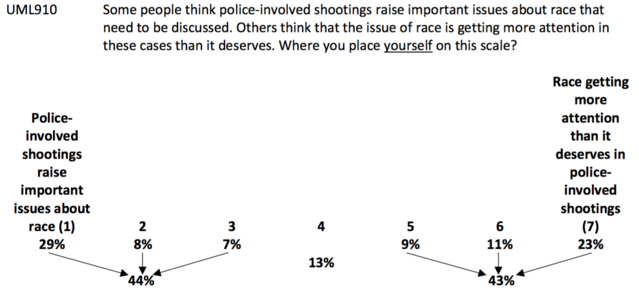Politics
Dueling Facts of the 2020 Presidential Election
What are the disputed facts of the campaign?
Posted October 23, 2020
Perceptions of reality have diverged in American politics. Whether it is climate change, the national debt, gender differences, vaccinations, the state of the economy, the threat from terrorism, the dangers of marijuana, or many other realities at the core of our political conflicts, Americans hold distinct perceptions of the facts.
The 2020 election has highlighted many of these dueling fact perceptions, but two stand out as the core of the campaign disputes: the pandemic and policing.
Even at the beginning of the election season, those two things were high on the agenda of likely voters. According to Pew data from August, Biden supporters ranked their most important issues as 1) health care, 2) the coronavirus, and 3) racial inequality. (Trump supporters ranked the economy as #1, violent crime as #2, and immigration or the Supreme Court tied at #3.)
The Pandemic
The facts of the pandemic—How much of a threat is it to most Americans? Do masks work? Is it safe to re-open schools or restaurants? Will a vaccine be safe?—have been perceived quite differently, driven by competing values and social identities.
Perhaps one of the clearest illustrations of ideological differences is the competing perceptions of the reported death toll. Back in July when the CDC was reporting the total number of American deaths from COVID surpassing 135,000, the polling firm Ipsos reported that a majority of Democrats believed the number was actually higher. On the other hand, 58% of Republicans believed the number must be exaggerated.
As of September, with CDC numbers over 200,000, the percentage of Democrats who believe the official numbers are too low was up to 64%, while the percentage of Republicans who believe the number is falsely high rose to 70% (29 September polling results).
Race and Policing
Like the perceived facts of the pandemic, the perceived facts of race and policing can be focused in several different ways. But the core dispute is the meaning of the deaths of many Black Americans, including George Floyd and Breonna Taylor earlier this year and many others going back to Trayvon Martin in 2013. UMass Lowell framed the question this way in a national survey (conducted by YouGov in August 2020):

The proportion of Americans who see the police shootings being primarily about race is about half (44%), while the proportion who believe that race is getting undue attention and the events are primarily not racial is roughly the other half (43%). Americans who live and work only in one of those groups are likely surprised to hear that another half of the nation holds opposing perceptions about what these events reveal.
These perceptions are also divided along clear ideological and partisan lines. The UML survey data reveal that 72% of Democrats see the police shootings as primarily racial, while 78% of Republicans hold the opposing perception.

The pandemic and policing may be two of the most prominent issues of the 2020 presidential election. And perceptions of the facts of the pandemic and police shootings are dramatically divided. Dueling fact perceptions continue to characterize American politics and presidential elections, as they surely will long after the election is over.


